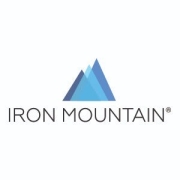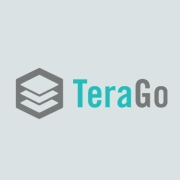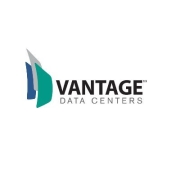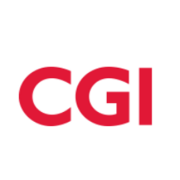Data Center Outsourcing (USA) offers enterprises cost-effective management and maintenance of IT infrastructure by third-party service providers, leading to optimized performance and flexibility.
The top 5 Data Center Outsourcing (USA) solutions are Iron Mountain Data Centers, Cyxtera Data Centers, Lumen Data Center Outsourcing, IBM Data Center Outsourcing and Flexential FlexAnywhere, as ranked by PeerSpot users in March 2025. Iron Mountain Data Centers received the highest rating of 0.0 among the leaders, is the most popular solution in terms of searches by peers, and holds the largest mind share of 31.5%.
The solution provides a comprehensive approach to IT operations, allowing companies to focus on core activities while the outsourcing partner takes care of data center management. Businesses benefit from reduced operational costs, increased scalability, and access to the latest technology and expertise.
What are the critical features?In healthcare, data center outsourcing ensures secure management of patient records and compliance with regulations. Financial services use it for robust security and compliance. In retail, scalable solutions help manage peak shopping seasons.
Data Center Outsourcing (USA) helps organizations reduce costs, improve IT operations, and focus on their core business objectives.













Data center outsourcing services in the USA encompass a range of solutions designed to help businesses manage their IT infrastructure more efficiently while focusing on core business activities. These services are critical for organizations aiming to reduce operational costs, enhance scalability, and gain access to advanced technologies and expertise. Here are some of the primary types of data center outsourcing services available:
**1. Colocation Services:** Colocation involves renting space within a third-party data center. The service provider offers physical security, cooling, power, and connectivity, while the client retains control over the hardware and software. This arrangement allows businesses to benefit from high-quality infrastructure without the capital expenditure (CapEx) associated with building and maintaining their own data center.
**2. Managed Services:** Managed services providers (MSPs) offer more comprehensive solutions, managing a client’s hardware, software, security, and overall IT infrastructure. This includes server management, network management, and data backup and recovery. MSPs enable businesses to offload routine IT tasks, thereby freeing up internal resources for strategic initiatives.
**3. Cloud Services:** Cloud services, including Infrastructure as a Service (IaaS), Platform as a Service (PaaS), and Software as a Service (SaaS), are popular outsourcing options. With IaaS, companies rent virtualized computing resources over the internet, whereas PaaS provides a platform allowing customers to develop, run, and manage applications without dealing with the underlying infrastructure. SaaS delivers software applications over the internet on a subscription basis. Cloud services offer scalability, flexibility, and often, reduced costs compared to traditional data center models.
**4. Disaster Recovery and Business Continuity Services:** These services ensure that businesses can quickly recover and continue operations after a disaster or unexpected event. This entails data backup solutions, replication services, and comprehensive disaster recovery plans. Outsourcing disaster recovery services allows organizations to leverage expertise and infrastructure they might not have in-house.
**5. Network and Security Services:** Outsourcing network and security services means entrusting a third-party provider with monitoring, managing, and securing an organization's data network. Services include firewall management, intrusion detection systems, security audits, and compliance management. This specialization helps in mitigating risks and protecting sensitive data against cyber threats.
**6. IT Support and Helpdesk Services:** Outsourcing IT support and helpdesk functions enables businesses to provide round-the-clock technical support without maintaining a large in-house team. These services handle troubleshooting, technical issues, and general IT support, enhancing end-user experience and operational efficiency.
In summary, data center outsourcing services in the USA offer diverse options tailored to meet varying business needs, from colocation and cloud services to comprehensive managed services and disaster recovery solutions. These services support organizations in enhancing performance, improving security, and reducing costs, allowing them to focus on core competencies and strategic growth initiatives.
Data Center Outsourcing Services (USA) provide comprehensive solutions by managing IT infrastructure and operations for businesses seeking to focus on core competencies while ensuring that their data center needs are efficiently handled by experts. Here’s how it works:
1. **Assessment and Planning:** - **Evaluation:** Detailed analysis of the current IT infrastructure, systems, and processes. - **Requirements Gathering:** Determine business needs, compliance requirements, and performance metrics. - **Strategic Planning:** Develop a comprehensive outsourcing strategy, including timelines, resource allocation, and transition plans.
2. **Transition:** - **Initial Setup:** Establish communication channels, governance structures, and stakeholder roles. - **Migration Planning:** Create a meticulous plan for transferring data, applications, and workloads to the outsourced data center. - **Implementation:** Execute migration with minimal downtime and disruption, ensuring data integrity and security.
3. **Service Delivery:** - **Infrastructure Management:** Continuous monitoring of hardware, software, network components, and data storage. - **System Administration:** Maintenance of operating systems, database management, and support for various applications. - **Backup and Recovery:** Implement robust backup protocols and disaster recovery plans to ensure data availability and integrity.
4. **Monitoring and Support:** - **24/7 Monitoring:** Real-time surveillance of all systems to detect and address issues promptly. - **Technical Support:** Provide round-the-clock helpdesk and troubleshooting assistance. - **Performance Optimization:** Regularly analyze system performance and implement optimizations for better efficiency and speed.
5. **Security and Compliance:** - **Cybersecurity Measures:** Deploy firewalls, intrusion detection systems, and encryption protocols to safeguard data. - **Compliance Management:** Ensure adherence to regulatory requirements such as HIPAA, GDPR, and other industry standards.
6. **Scalability and Flexibility:** - **Resource Scaling:** Ability to scale resources up or down based on business demands. - **Flexible Contracts:** Offer various contract models, including pay-per-use, fixed-term, and hybrid arrangements, to suit business needs.
7. **Cost Management:** - **Cost Analysis:** Provide transparent and detailed reports on operational expenses. - **Budgeting:** Assist in creating and managing IT budgets to align with business financial goals.
8. **Continuous Improvement:** - **Feedback Loops:** Collect and analyze feedback to refine service delivery. - **Innovation:** Incorporate new technologies and methodologies to enhance overall service efficiency.
By leveraging Data Center Outsourcing Services, businesses in the USA can optimize their IT operations, reduce costs, and improve service resilience and agility.
Data Center Outsourcing Services (DCOS) in the USA offer numerous benefits that can significantly enhance business operations, financial efficiency, and technological capabilities. Here are some key advantages:
- **Cost Efficiency**: Outsourcing data center operations reduces the need for substantial capital investments in infrastructure, hardware, and software. Companies can convert these capital expenditures into predictable operational expenses, thus managing budgets more effectively.
- **Scalability**: Outsourced data centers provide flexibility to scale IT resources up or down based on demand. This agility allows businesses to respond quickly to market changes without the delays and costs associated with physical expansion or contraction of in-house data centers.
- **Access to Expertise**: DCOS providers typically have specialized skills and expertise in various aspects of data center management, including network security, disaster recovery, and compliance. Leveraging this expertise can enhance the reliability and performance of IT operations.
- **Reduced Risk**: Professional data center outsourcing companies often implement advanced security measures and compliance protocols, minimizing risks related to data breaches and regulatory penalties. They can also ensure robust business continuity strategies, including regular backups and disaster recovery planning.
- **Focus on Core Competencies**: By outsourcing data center functions, organizations can divert their internal resources and focus to strategic activities that drive business growth and innovation, rather than on managing and maintaining IT infrastructure.
- **Access to Latest Technologies**: Outsourcing partners continually update their infrastructure to remain competitive. This means businesses can benefit from the latest in data center technology without the need for direct investment or managing complex upgrades and transitions.
- **Enhanced Performance**: Quality DCOS providers often guarantee high levels of uptime and performance through Service Level Agreements (SLAs). This can result in improved application performance, reduced downtime, and enhanced overall user experience.
- **Environmental Benefits**: Many outsourced data centers are energy-efficient and designed with sustainability in mind. Leveraging these eco-friendly facilities can help companies reduce their carbon footprint and contribute to broader sustainability goals.
Overall, Data Center Outsourcing Services offer compelling technical, financial, and strategic benefits, making them an attractive option for businesses looking to optimize their IT operations.